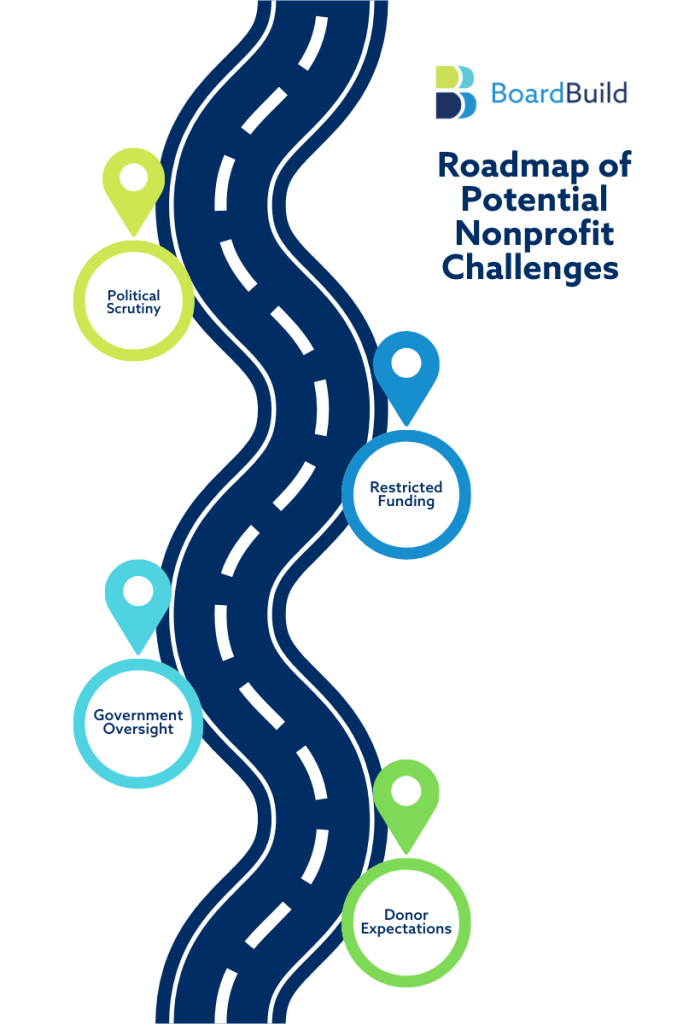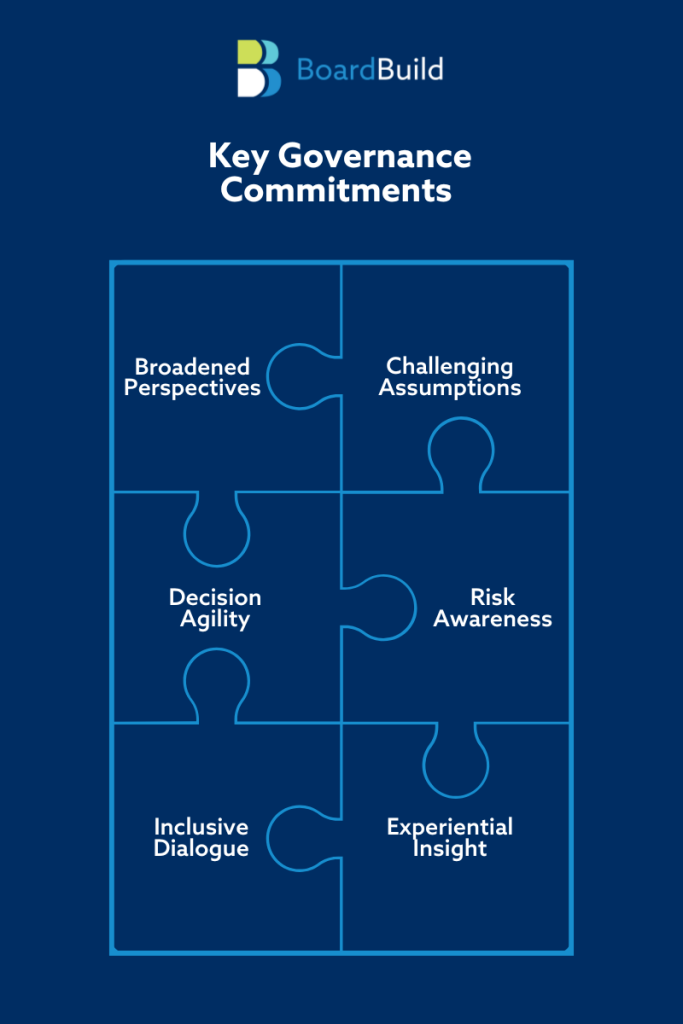
The Board’s Blueprint for Resilient and Strategic Nonprofit Board Governance
Strong governance leadership has never been more critical to a nonprofit’s survival and impact than it is today. The challenges of 2025—political scrutiny, government intervention in philanthropy, frozen or restricted funding, and shifting nonprofit oversight—demand that boards act with clarity, agility, and conviction.

Yet, many board members step into their roles without formal governance training, leaving organizations vulnerable to ineffective decision-making and compliance risks. This is where BoardBuild plays a crucial role, equipping nonprofit leaders with the skills and resources they need to navigate today’s complexities with confidence. Through expert-led training and strategic development programs, BoardBuild empowers boards to lead with resilience, accountability, and impact.
The first quarter of 2025 has been anything but business as usual. Boards must think critically, challenge assumptions, and embrace perspectives they may not fully understand—or even agree with. Navigating uncertainty requires swift, informed decision-making and a clear understanding of risk tolerance. Boards cannot afford decision paralysis. They must balance legal requirements, public perception, and mission integrity—without succumbing to mission drift.
Key Governance Commitments
Boards that embrace these principles will strengthen decision-making and position their organizations for success:

Broadened Perspectives: Board members must bring unique experiences and problem-solving approaches that enhance strategic discussions.
Challenging Assumptions: Critical thinking and constructive debate uncover blind spots and drive stronger, more informed decisions.
Risk Awareness: A clear understanding of potential threats and opportunities ensures long-term sustainability.
Decision Agility: Boards must act decisively, leveraging foresight and strategic planning to remain ahead of challenges.
Inclusive Dialogue: A governance culture where all members contribute meaningfully fosters innovation and accountability.
Experiential Insight: Real-world knowledge and industry expertise enhance strategic oversight and adaptability.
Grounding 2025 Challenges in Core Board Responsibilities
While external pressures evolve, the fundamental responsibilities of board members remain unchanged. The three core legal and ethical duties—Duty of Care, Duty of Loyalty, and Duty of Obedience—provide a structured framework for nonprofit governance.
Duty of Care: Strengthening Governance in an Era of Complexity
The Duty of Care requires board members to act in good faith, make informed decisions, and exercise due diligence. This means staying engaged, asking critical questions, and ensuring leadership takes proactive steps to manage risks and opportunities.
Key 2025 Challenge: The Need for Specialized Expertise
Boards can no longer rely on general governance skills alone. Today’s financial, legal, and operational risks require expertise in areas such as finance, compliance, cybersecurity, and digital transformation.
Board Action Steps:
- Conduct board composition assessments to identify skill gaps and recruit accordingly.
- Invest in ongoing governance education on risk management, financial sustainability, and policy advocacy.
- Implement scenario planning to prepare for legal and financial challenges before they arise.
Duty of Loyalty: Aligning Decisions with Mission and Values
Board members must prioritize the nonprofit’s mission above personal or political interests. In 2025, as donor expectations shift and nonprofits face increased scrutiny, boards must navigate these tensions while safeguarding their organization’s core purpose.
Key 2025 Challenge: Political Uncertainty and Organizational Stability
Nonprofits advocating for social and community-driven solutions are under heightened scrutiny. Some states have restricted funding and imposed limits on programming. Boards must decide how to sustain their mission while managing risks and opportunities.
Board Action Steps:
- Reaffirm core values and clearly communicate them to stakeholders.
- Develop risk mitigation strategies to prepare for financial and legal shifts.
- Engage donors and corporate partners in sustaining long-term support amid changing policies.
Duty of Obedience: Ensuring Compliance While Advocating for Impact
Boards must ensure their organizations operate within legal boundaries while remaining true to their mission.
Key 2025 Challenge: Demonstrating Measurable Impact & Financial Sustainability
Funders now demand outcome-driven results. Without strong governance, nonprofits risk losing funding, facing compliance challenges, or failing to meet donor expectations.
Board Action Steps:
- Strengthen financial oversight by regularly reviewing financial reports and compliance measures.
- Develop impact measurement frameworks that combine qualitative storytelling with quantitative data.
- Advocate for general operating support to ensure financial stability beyond project-based funding.
Leadership in Action
Effective governance doesn’t happen by chance—it’s built through knowledge, strategy, and intentional leadership. BoardBuild provides expert training and resources to equip board members with the skills they need to navigate complex challenges, uphold governance best practices, and drive nonprofit impact.
Is your board ready for 2025? Elevate your governance strategy with BoardBuild’s training programs and ensure your organization is positioned for resilience and success.
This blog was written by BoardBuild Team Member Dr. Chris Wilkie in March 2025. Connect with Chris on LinkedIn to learn more about his expertise and contributions.





Responses